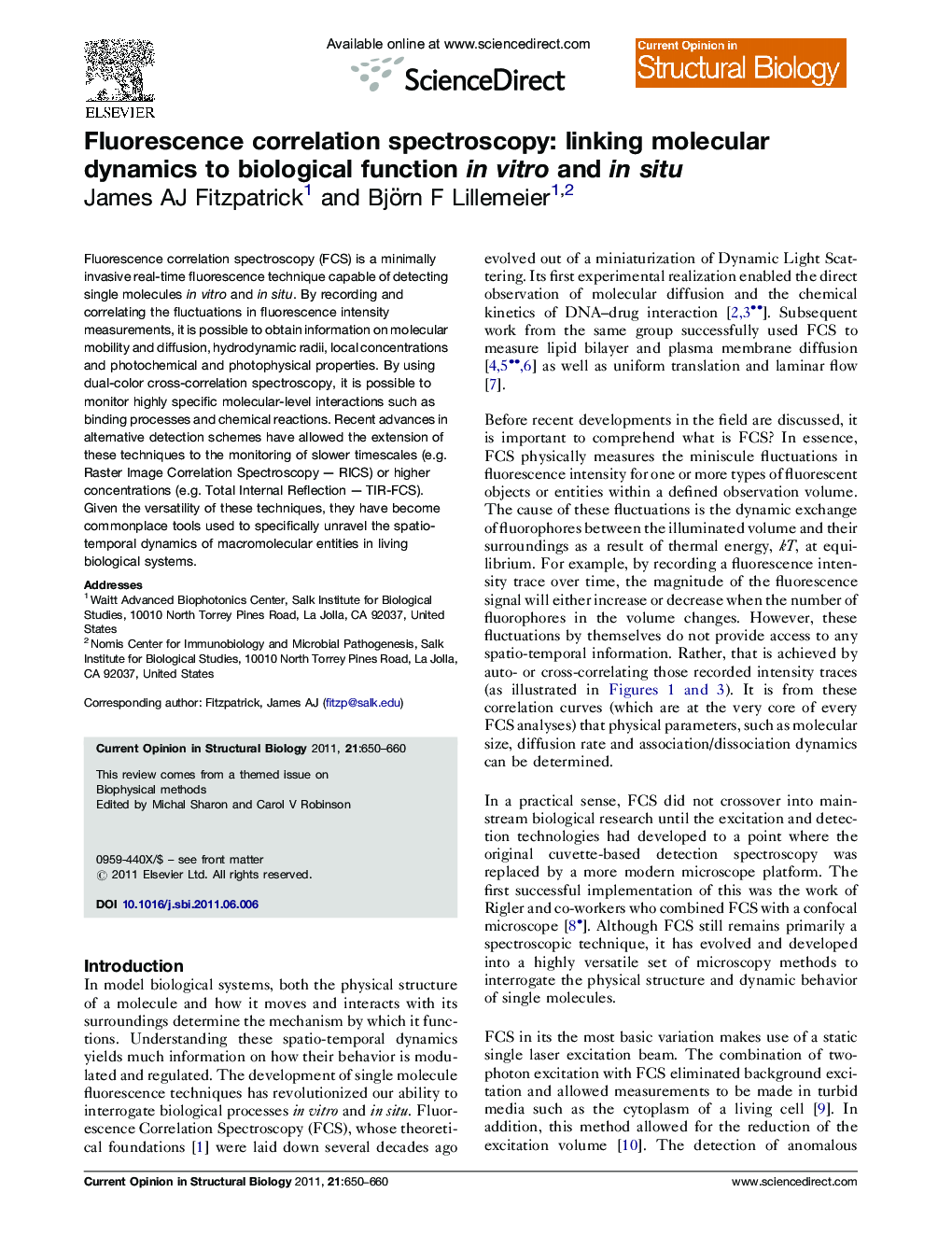| کد مقاله | کد نشریه | سال انتشار | مقاله انگلیسی | نسخه تمام متن |
|---|---|---|---|---|
| 1979243 | 1061670 | 2011 | 11 صفحه PDF | دانلود رایگان |

Fluorescence correlation spectroscopy (FCS) is a minimally invasive real-time fluorescence technique capable of detecting single molecules in vitro and in situ. By recording and correlating the fluctuations in fluorescence intensity measurements, it is possible to obtain information on molecular mobility and diffusion, hydrodynamic radii, local concentrations and photochemical and photophysical properties. By using dual-color cross-correlation spectroscopy, it is possible to monitor highly specific molecular-level interactions such as binding processes and chemical reactions. Recent advances in alternative detection schemes have allowed the extension of these techniques to the monitoring of slower timescales (e.g. Raster Image Correlation Spectroscopy — RICS) or higher concentrations (e.g. Total Internal Reflection — TIR-FCS). Given the versatility of these techniques, they have become commonplace tools used to specifically unravel the spatio-temporal dynamics of macromolecular entities in living biological systems.
► Theoretical framework of fluorescence correlation spectroscopy (FCS).
► Description of FCS and FCCS experimental setup.
► Protein diffusion in ordered and disordered environments.
► Spatiotemporal dynamics of proteins and signaling complexes in living cells.
► Active transport and directed flow in the study of vasculature in vivo.
Journal: Current Opinion in Structural Biology - Volume 21, Issue 5, October 2011, Pages 650–660